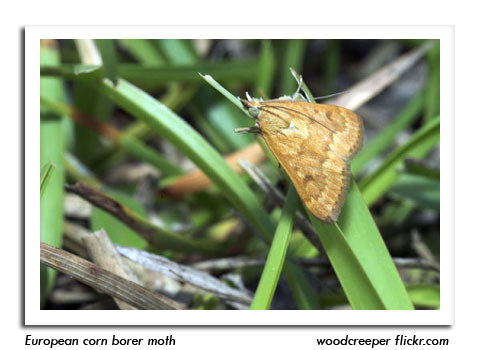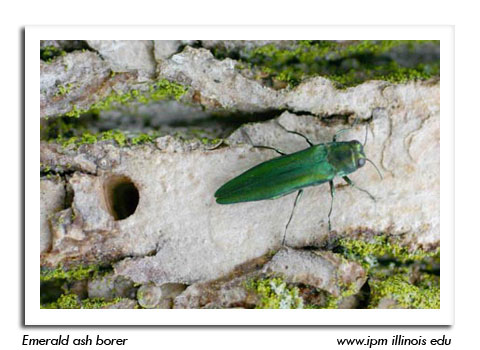
 |
|
|
Looking Ahead
Volume 57 Number 8 Date 05/30/2012 EUROPEAN CORN BORER - The most advanced corn will be susceptible to infestation by first generation corn borers during the first week of June. Egg deposition has been occurring for several weeks and the spring moth flight has peaked across the southern half of the state. Early signs of damage, including leaf pinholes and shotholes, should become noticeable in southern and central Wisconsin corn fields in the next 1-2 weeks. EMERALD ASH BORER - Beetles were noted in West Bend on May 29, approximately 12-14 days earlier than in the previous two years. A comprehensive detection survey including 2,118 traps is now underway in 61 Wisconsin counties. Residents within 15 miles of an infestation concerned about their ash trees should consult with an arborist or tree care professional in the immediate future. A variety of treatments are available, though none are guaranteed to prevent or reverse an infestation. SQUASH VINE BORER - The adult emergence period is expected to begin by June 5 in the far southern areas, a few days later than last predicted. Pumpkins, squash and other vine crops should be examined for eggs and evidence of feeding from 900-1,000 degree days (base 50°F). Controls must be applied when the adults are first noticed and before the larvae bore into vines. CHERRY SCALLOP SHELL MOTH - Extension Entomologist Phil Pellitteri reports that these moths are appearing in high numbers in Wood County. The gregarious, nest-making larvae of this insect are defoliators of black cherry and other native cherry trees. Periodic outbreaks are uncommon in Wisconsin but can last for 2-3 years before populations are significantly reduced by an egg-parasitizing wasp. It remains unclear if the abundance of moths in the central area of the state this spring will result in a full-scale larval outbreak in June. --Krista Hamilton, DATCP Entomologist 





|
|
|